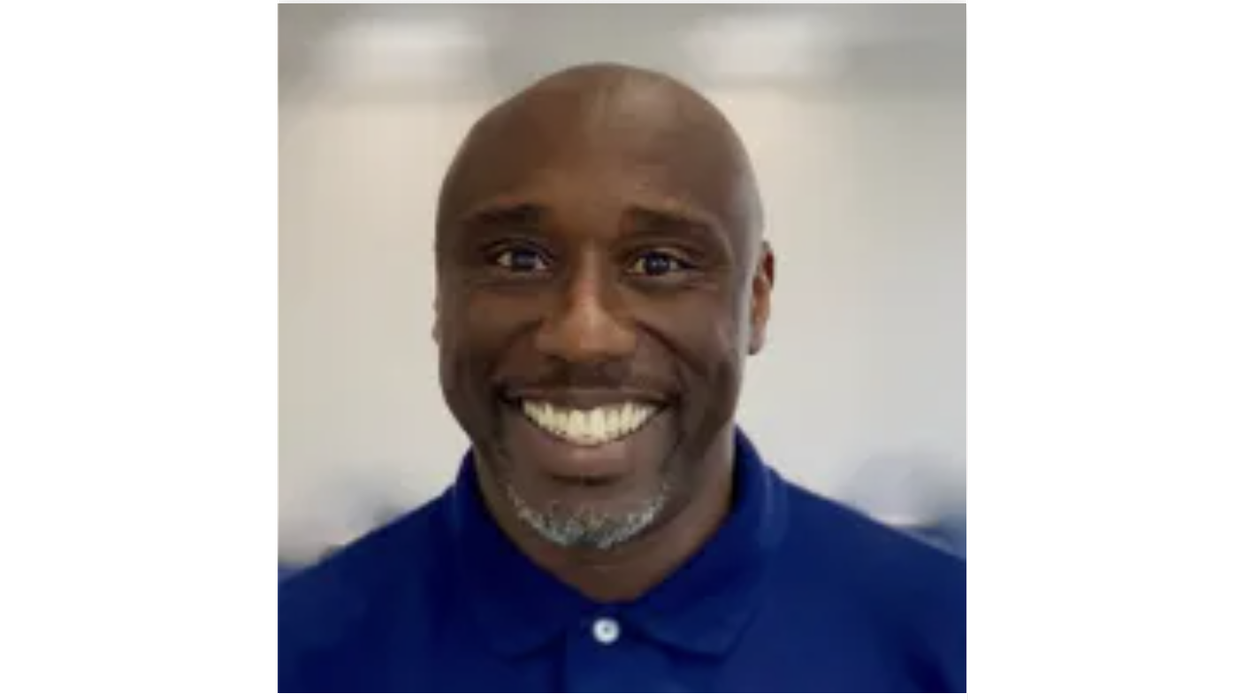Nevins is co-publisher of The Fulcrum and co-founder and board chairman of the Bridge Alliance Education Fund.
A third-generation educator, the Rev. F. Willis Johnson is a spiritual entrepreneur, senior minister of Christ Church - Columbus and adjunct faculty at Methodist Theological School of Ohio. Johnson earned national prominence as a civic leader and senior minister of Wellspring Church in Ferguson, Mo.
Johnson is respected for his leadership and strategies on social and racial justice issues. Recognized as a scholar-practitioner, Johnson authored “ Holding Up Your Corner: Talking About Race in Your Community ” and is a sought-after thought leader who empowers individuals and communities to respond prophetically — through healing, justice and reconciliation.
His leadership roles are as diverse as his skills. With a wealth of experience spanning more than 20 years and multiple states, Johnson’s expertise extends far beyond the pulpit. His training in education and nonprofit management has seen him serve in volunteer and paid leadership positions for numerous nonprofit organizations.
(Johnson is also the diversity and leadership program director for theBridge Alliance, which publishes The Fulcrum.)
He counsels bishops, annual conferences and local churches nationwide. In 2017, Johnson was the Vosburgh visiting professor of ministry and social engagement at Drew University’s Theological School.
Johnson’s commitment to social and racial justice is unwavering and highly relevant to our nation’s current upheaval. His work continues to prepare prophetic leaders and promote healing, justice and transformation through his leadership of diverse organizations and initiatives.
A perfect example is the dialogue policing project Jonshon is leading. Dialogue policing is a method of law enforcement that focuses on communication and engagement with the public to manage social conflicts and maintain order effectively. It emphasizes building trust between police and community members by creating open communication channels, fostering collaboration and promoting understanding. The approach aims to reduce tension, prevent escalation of conflicts and ultimately improve the relationship between law enforcement and the public.
Johnson is facilitating the collaborative work of community stakeholders and a select group of Columbus Police Department dialogue officers as it is scaled and amplified through an intensive cohort-style community engagement initiative that is now underway and will continue for the next six months. The crux of dialogue policing promotes communication, mutual respect and trust between protesting groups and law enforcement officers.
The initiative uses an approach for interfacing activists, the community, the police, and other socio-democratic groups during First Amendment activities. It includes:
- Establishing open lines of communication: Policing officials need to prioritize open channels of communication between themselves and protest organizers to keep interactions honest, purposeful and proactive.
- A humanizing approach: Officers should avoid militaristic or overpowering tactics. Instead they should embrace a more compassionate posture that humanizes law enforcement officers and protesters.
- Contingency planning: Police should collaborate with event organizers to identify potential risks or hazards while developing appropriate response plans that respect participants' rights.
- Empathy training for law enforcement: Empathy training should be a fundamental component of police education programs in order to strengthen understanding and rapport between officers and protesters.
- Proactive engagement: Regular meetings or forums between law enforcement, community members and activists to address concerns or emerging issues are essential in promoting dialogue, establishing relationships, deterring miscommunication and allowing for greater oversight.
Dialogue policing dares to better protect the rights enshrined in the First Amendment while fostering positive engagement between diverse groups. It also represents an opportunity to rethink conventional law enforcement strategies and proactively support citizens in expressing their democratic rights safely and peacefully.
I had the wonderful opportunity to interview Johnson in late July for the CityBiz “Meet the Change Leaders” series. Watch to learn the full extent of his democracy reform work:
The Fulcrum interviews Rev. Dr. F. Willis Johnson, Senior Minister of Living Tree Churchwww.youtube.com




















